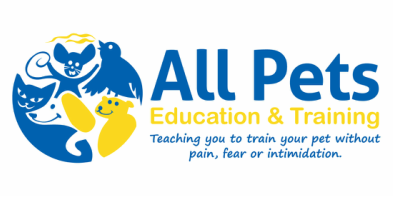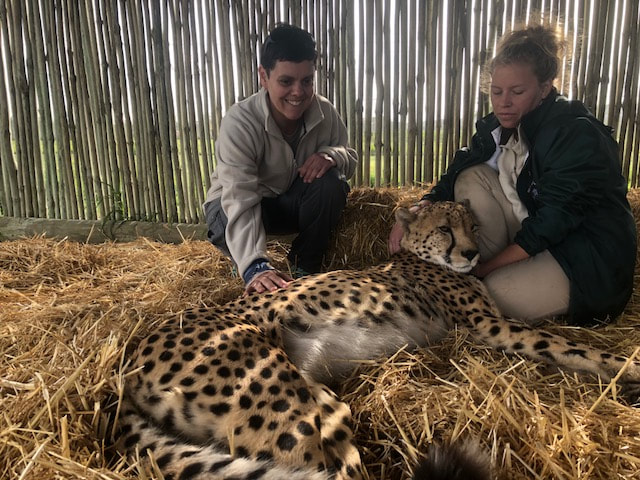Why? Well, that is a long story, but in short South Africa has some amazing things to offer and, some not so amazing things about it – we witnessed both.
So, what is this case study about? Me, the effects of single incident learning, stress, resilience and recovery.
As many know I was heading to South Africa for a few weeks in June and July. During my time there I was working with my friend and colleague Dr Kat and some others. We were working with cheetahs.
The cheetahs were amazing, and they will forever hold a place in my heart. I would also like to say that 99% of the people we met during our stay in South Africa were also wonderful, however we met with a couple that weren’t.
So, a quick summary. We were sleeping in our house which we believed to be secure. Doors locked, electric fence etc, on a property with a security presence. Unfortunately, in the early hours of the morning, we were woken by 2 armed men. There is nothing quite like a torch in your face, and gun to your head to get the adrenaline pumping.
A struggle ensued, and two of us were physically injured. We have, or will recover from the physical injuries. We were very lucky, although there were scuffles and shots fired, we didn’t die, weren’t raped, and the things stolen (tech gear, cash etc) can be replaced.
But what have I learnt? That the good old adrenaline surge bypassed my thinking brain and went straight to my primitive brain resulting in the fight or flight response that kicked in. I can guarantee you, there was no active thought process or planning throughout the ordeal. I wouldn’t have thought it before, but I fight. I hit, kick, bite, and yell. And during this time, I was in no state to learn. This is exactly why asking your dog to perform a certain behaviour when it is under great stress is pointless. The dog is unable to process that information at the time. It is not the dogs choice, it is a physical reaction and as far your dog is concerned, his life is in danger and he has no time to focus on you or perform your desired cues.
With that sudden release and huge surge of adrenaline, we also had an increase in cortisol, a primary stress hormone. It takes several days for your cortisol levels to return to normal.
Following the night of the incident, we were hyper vigilant for several days (at least a week), and still after a week, night time, noises, and the look of certain people, made us very nervous.
During the remaining time in South Africa (Kat and I finished the program as was initially planned), we were still affected. This was mostly at night, and included insomnia, nightmares, tiredness, startling easily and an edginess or feeling of agitation. This continued even once home and in the land of Aus, that is so much safer than we give it credit for. Seriously, thank your lucky stars if you are a fellow Aussie.
It has now been 6 weeks and I am very comfortable during the day, and certainly improving at night. However there are still ongoing stress effects, this mostly affects my sleep which would average 3-4 hours per night (actually its usually more 2 of a solidish chunk and then awake every 5-10mins or so for the rest of the night).
I can see where it only takes one traumatic episode for a dog (or human) to have a long lasting or ongoing response.
So, what am I doing to help myself?
I have sought help, just as you should seek help for your pets if they were in a similar fight/flight scenario.
I am working on my own behaviour modification program, and gradually easing back in to activities that were making me uncomfortable. I can now sleep with the light off, and no longer need a weapon (frypan or horseshoe – was the best I had but I would of gladly used them if needed) nearby just in case. I can go outside at night for brief periods and not automatically panic. I have signed up for Pawgust which is walking 30mins a day for 30 days and raising money for Guide Dogs at the same time. During the walking, my plan is to increase my walk in the dark (sunrise or sunset), by 1 minute a day. Therefore, by the end of the month I will be walking entirely in the dark. I will also include training for loose lead in the newsletter, as obviously walks are much more enjoyable if you aren’t dragged down the street.
What else I have learnt? We are all different, just as all our dogs are different. We all responded differently at the time of the incident (3 of us in the house) and this has continued afterwards. Resilience, is a key word and I have also written an article about it since. It is something that we should aim to instil in ourselves, our pets and children etc. Those that are more resilient will bounce back faster, and have less long-term effects. I believe I am resilient.
The support of friends and family plays a huge role in recovery as well. I am incredibly grateful for the amount of support I have had from my friends and family. Think about this from your pets perspective too. If your pet can't trust you to look out for them, how will they feel safe around you?
So, why did I write this? Well, I want you to think about any incidents (remember it only takes the one) that your pets have, and how best you can help them recover. Allow them time, work at their pace whilst slowly increasing criteria. If you are having troubles with your pet and their behaviour after such an incident, don’t delay and seek help from a qualified reward-based trainer or behaviour veterinarian sooner rather than later.


 RSS Feed
RSS Feed